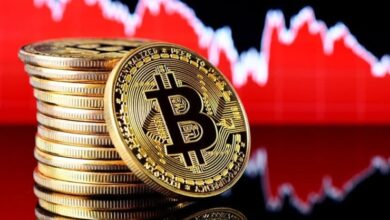Arthur Hayes Warns: Fed’s Rate Cut Could Boost Inflation and Influence Voter Behavior
Hayes is concerned about the economic consequences of a rate cut of 50%. What brings this concern?

Bitmez co-founder, Arthur Hayes, has recently expressed concerns about the Federal Reserve’s decision to cut interest rates. He proposes that this action might not just result in increased inflation but could also be a deliberate attempt to sway voter behavior leading up to the upcoming elections.
Arthur Hayes says Feds Interest Cut Politically Motivated
The Federal Reserve cut its key interest rate by 50 basis points, bringing it down to a range of 4.75% to 5%. According to Hayes, the Fed’s decision to lower rates could be politically driven politically driven, particularly to sway voter sentiment towards supporting current administration policies or candidates.
Such rate adjustments might be designed to provide short-term economic relief, thereby garnering favor from the electorate. Its potential manipulation raises questions about the intersection of economic policy and political strategy.
The Fed claims that its policies prioritize achieving maximum employment and stable prices. However, critics like Hayes argue that political factors can sometimes sway monetary policy decisions, particularly in an election year. This viewpoint is not new. Throughout history, the relationship between politics and monetary policy has frequently sparked debate.
Crypto Market Inflation Concerns
Lowering Interest rate typically encourages borrowing and spending, which can boost economic activity. However, in a climate where inflation is already a concern, further rate cuts could exacerbate the problem, leading to rising prices across the board.
Hayes warns that this could result in an inflationary spiral, with consumers facing higher costs for goods and services. Such a scenario would not only affect everyday people but could also lead to increased market volatility as investors react to changing economic conditions. Recent data shows that inflation rates have been edging up, further validating Hayes’ concerns.
For the cryptocurrency market, Hayes’ warning signals potential turbulence. Cryptocurrencies often react to economic uncertainty, and a period of high inflation coupled with political maneuvering could lead to increased volatility.
Investors may flock to assets like Bitcoin, seen as a hedge against inflation, or a threat to safer investments, depending on market sentiment.
In summary, Aurthur Hayes’ cautionary note highlights the complex interplay between economic policy, inflation, and political strategy. As the Fed navigates these challenges, the potential for market disruption and voter influence remains a critical topic to watch.





















































